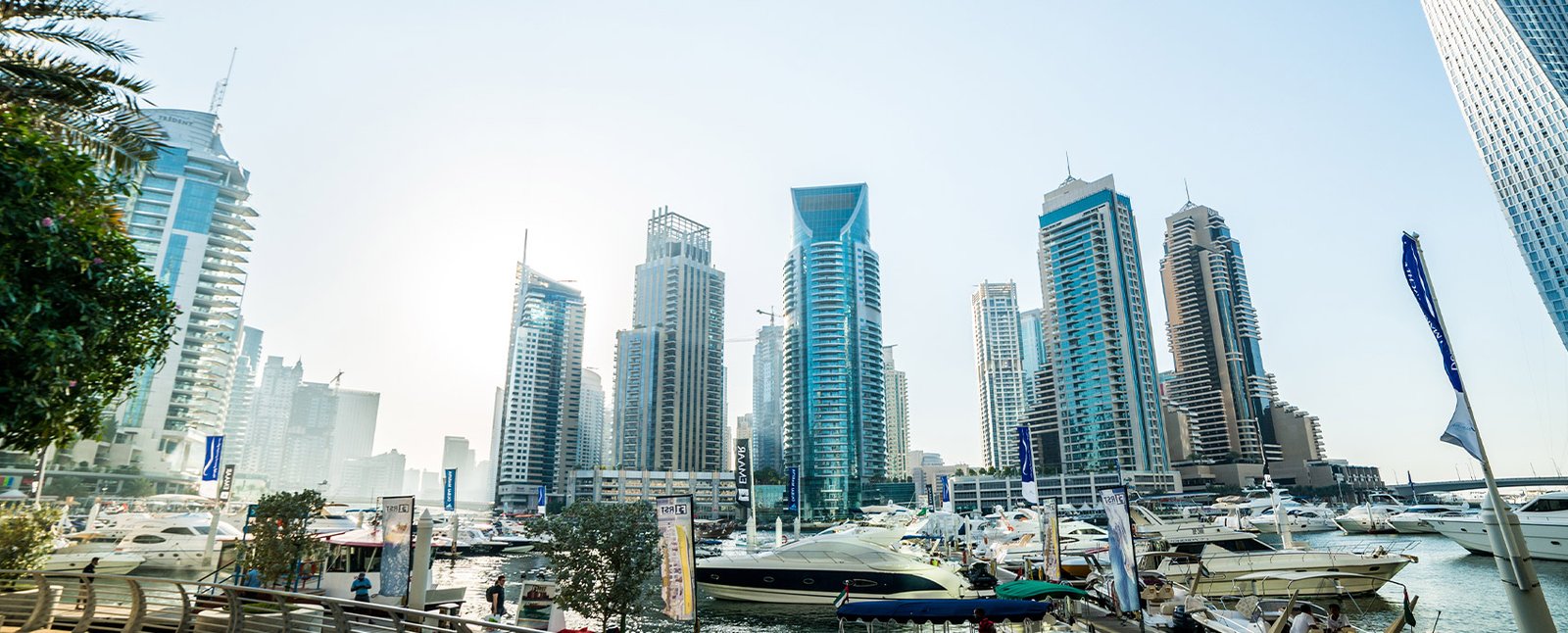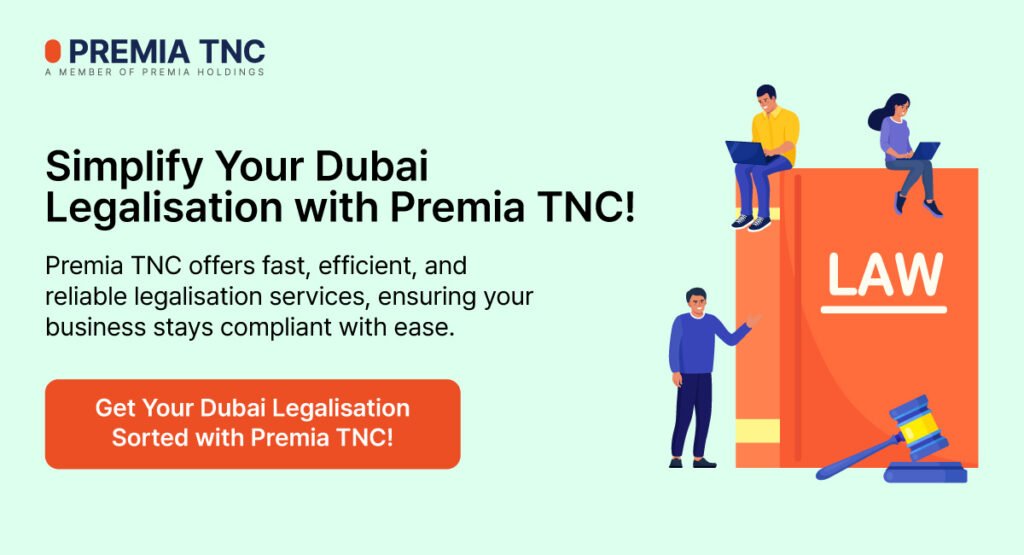Engaging with the United Arab Emirates (UAE) requires individuals and businesses to undergo the critical process of document legalization. Whether you are relocating for work, pursuing higher education, establishing a business, or handling personal legal matters, ensuring your documents are legally recognized in the UAE is essential. Legalization involves verifying the authenticity of documents issued in one country so they are accepted by authorities in another, in this case, the UAE. This guide provides an in-depth look at the legalization process, helping you navigate each step with clarity and confidence.
In the UAE, document legalization is not just a formality, as it is considered a legal requirement for many official procedures. To prevent fraud and ensure the legitimacy of foreign documents, the UAE government requires proper attestation for a wide range of official matters, which include visa applications, employment contracts, marriage registrations, and academic admissions. This process safeguards both individuals and institutions by confirming that all submitted documents are genuine and meet the country’s legal standards.
The types of documents that typically require legalization are diverse and span both personal and professional domains. These include educational certificates, birth and marriage certificates, commercial agreements, and even medical or police clearance reports. Depending on your purpose in the UAE, whether you are an expatriate, student, entrepreneur, or legal representative, you may need to legalize different sets of documents. Understanding which documents apply to your situation is the first step toward a smooth legalization process.
From the initial notarization in your home country to final attestation by UAE authorities, this guide covers every step of the legalization journey. It will also cover who needs document legalization, the associated fees and timelines, and common challenges to watch out for. By the end, you will have a clear roadmap to ensure your documents are fully compliant with UAE regulations, saving you time, effort, and potential setbacks.
Key Takeaways
- Essential for Legal Recognition: Document legalization is mandatory in Dubai for both personal and business transactions to ensure official recognition by UAE authorities.
- Protection and Compliance: Legalization safeguards against document fraud and forgery while ensuring compliance with UAE legal and administrative standards.
- Wide Range of Required Documents: Key documents requiring legalization include educational certificates, marriage and/or divorce papers, birth certificates, POAs, business documents, police clearances, and medical reports.
- Critical for Visa and Immigration: Legalized documents are essential for UAE residency, visa applications, and university admissions, supporting identity verification and eligibility.
- Structured Legalization Process: The process involves multiple stages, starting from the document's country of origin to the UAE MOFA and relevant specialized authorities.
- Cost and Time Management: Legalization costs and timeframes vary; expedited services are available for urgent requirements, though delays may occur due to incomplete paperwork.
- Common Pitfalls and Solutions: Challenges such as incomplete documentation, missing steps, format inconsistencies, and language barriers can hinder the process but are manageable with proper guidance.

Introduction to Legalization Procedures in Dubai
Legalization of documents is a vital process to ensure that foreign-issued documents are officially recognized for use in the United Arab Emirates. This procedure is commonly required for a range of purposes, including visa applications, business setup, academic pursuits, or personal legal matters. The process involves a series of verifications by relevant authorities in the document’s country of origin, followed by attestation by the UAE Ministry of Foreign Affairs and International Cooperation (MOFAIC).
To begin, documents must typically be authenticated by the designated government bodies in the country where they were issued, such as notary offices, ministries, or other competent institutions. After these initial verifications, the documents must then be attested by the UAE Embassy or Consulate in that country. The final legalization is carried out by MOFAIC in the UAE once this step is completed. This multi-step process confirms the authenticity of the document, ensuring it holds legal validity in the UAE. It is important to comply with the specific requirements outlined by MOFAIC to avoid delays or rejections, especially as these requirements may vary depending on the type and origin of the document.
Understanding the Legalization of Documents
Legalization in the UAE involves a formal process through which documents issued abroad are verified for authenticity and subsequently recognized by UAE authorities. This procedure is essential for individuals and businesses intending to use foreign-issued documents for official purposes in the UAE, such as employment, education, company formation, or immigration. The process typically includes attestation by the originating country’s relevant authorities, such as notary publics or ministries, followed by verification from the UAE Embassy or Consulate in that country.
Once the documents are attested by the UAE’s foreign mission, they must undergo a final authentication step within the UAE. This is carried out by the UAE Ministry of Foreign Affairs (MOFA), which confirms the previous attestations and validates the documents for use within the country. Only after this complete legalization chain is fulfilled will the documents be considered legally valid and accepted by UAE government entities, private organizations, or judicial bodies. The legalization process helps prevent fraud and ensures that all foreign documents presented in the UAE comply with local legal and regulatory standards.
The Significance of Legalization in Dubai
Document Legalization for UAE Government Recognition
Legalization of documents is a crucial requirement to ensure that foreign-issued papers are officially recognized by governmental authorities in the United Arab Emirates. This process validates the authenticity of documents such as certificates, contracts, and legal agreements issued outside the UAE, enabling them to be accepted by local ministries, courts, and regulatory bodies. Without proper legalization, foreign documents hold no legal standing in the UAE, which may hinder individuals and businesses from completing mandatory official procedures.
Mandatory Requirement for Personal and Business Transactions
The legalization process is indispensable for a wide range of applications within the UAE, particularly for immigration, employment, civil status, education, and commercial purposes. Individuals must submit legalized documents when applying for visas, residence permits, work authorization, and marriage registration. In academic and professional settings, educational certificates must be authenticated to be accepted by employers or academic institutions. Similarly, for businesses, legalizing commercial documents such as articles of incorporation or power of attorney is necessary to conduct lawful operations in the UAE.
Protection Against Document Fraud and Forgery
By authenticating foreign documents through official channels, legalization acts as a strong safeguard against the submission and use of forged or counterfeit papers. It ensures that every legalized document has passed through a verification chain involving various authorities, thereby affirming its legitimacy. This stringent process upholds the integrity of official procedures and protects individuals, institutions, and government entities from potential fraud and legal complications arising from illegitimate documentation.
Streamlining Legal and Administrative Processes
Eliminating uncertainties about a document’s validity, properly legalized documents significantly streamline legal and administrative procedures in the UAE. Whether submitting documents for governmental approvals, engaging in legal proceedings, or entering into business agreements, legalization ensures that the documents are processed efficiently and without unnecessary delays. This legal assurance fosters trust between parties and contributes to the overall efficiency and transparency of the UAE’s regulatory environment.
7 Essential Documents Requiring Legalization in Dubai
Authentication of Educational Certificates
Educational certificates, such as degrees, diplomas, and academic transcripts, must go through a comprehensive attestation procedure before they are officially recognized in the UAE. This process is essential for expatriates seeking employment, pursuing higher education, or applying for residency. The initial step involves attestation by the relevant education authority in the country where the certificate was issued. In many countries, this includes verification by a board of education or higher education commission. Following this, the document must be authenticated by that country’s Ministry of Foreign Affairs. The UAE Embassy or Consulate in the issuing country then provides the next layer of authentication.
Upon entry into the UAE, the Ministry of Foreign Affairs and International Cooperation (MOFAIC) attests to the documents as the final mandatory step. In some cases where equivalency is required or the profession is regulated, further approval may be needed from the UAE’s Ministry of Education or Ministry of Higher Education. This multi-layered approach ensures that all educational credentials are verified for authenticity, helping employers and government bodies maintain the integrity of professional qualifications in the UAE.
Key Takeaways:
- Educational documents are authenticated in both the issuing country and the UAE with MOFAIC plays a critical role in the final validation process.
- Additional ministry approvals may be required based on the profession or academic use.
Marriage and Divorce Certificates for Legal Purposes
In the UAE, the attestation of marriage and divorce certificates is mandatory for legal, administrative, and immigration-related matters. The process begins in the country of issuance, where the certificate must first be notarized or authenticated by a designated civil authority. It is then submitted to the local Ministry of Foreign Affairs for national-level verification. The UAE Embassy or Consulate in the issuing country authenticates the document before it is brought into the UAE.
Once in the UAE, MOFAIC completes the attestation to legally validate the document for use in matters such as family visa sponsorship, name changes, legal separations, or child custody applications. The attestation of a marriage certificate is often required to sponsor a spouse or child for residency, while a divorce decree may be needed to formalize marital status changes with UAE authorities. In sensitive matters such as inheritance, guardianship, or alimony, properly attested documents carry critical legal weight.
Key Takeaways:
- Attestation is essential for using marriage or divorce certificates in the UAE.
- Documents must be authenticated by the UAE Embassy and MOFAIC.
- Legal and civil applications depend heavily on properly attested certificates.
Birth Certificate for Identity and Immigration Purposes
A birth certificate serves as a foundational identity document and must be officially attested to be valid in the UAE for legal, educational, or immigration purposes. The process begins in the country where the birth certificate was issued. The certificate must be verified by the issuing authority, typically a civil registrar or municipal body, before being submitted to the national Ministry of Foreign Affairs for authentication.
Once authenticated, the UAE Embassy or Consulate in that country must endorse the document. Upon arrival in the UAE, MOFAIC conducts the final stage of attestation. In many cases, an attested birth certificate is required for applying for a residence visa, enrolling a child in school, obtaining a national ID, or processing healthcare benefits. This procedure ensures that the document is genuine and issued by an accredited civil authority.
Key Takeaways:
- Birth certificates must be attested to be recognized in the UAE.
- Attestation validates the document for residency, education, and healthcare access.
- MOFAIC confirmation is essential for final acceptance.
Power of Attorney Legalization for Representation
A power of attorney (POA) is a critical legal document that must be attested for it to be recognized and enforceable within the UAE. Whether the POA is issued inside or outside the UAE slightly affects the attestation procedure. Documents issued abroad must be notarized and authenticated by the appropriate authorities in the issuing country, including legal professionals or notaries, and then certified by the Ministry of Foreign Affairs. The UAE Embassy or Consulate then verifies the document.
MOFAIC carries out the final attestation. If the POA pertains to specific legal or financial matters such as real estate transactions, court representations, or company formation, it may also require authentication from local UAE courts or regulatory bodies. This ensures that the POA holds legal authority and complies with UAE laws, offering peace of mind to both grantors and recipients of the power.
Key Takeaways:
- POAs require multi-step attestation for enforceability in the UAE.
- Final attestation is completed by MOFAIC.
- Certain POAs may need additional legal validation based on their scope.
Commercial Documents for Business Activities
For commercial documents such as contracts, invoices, and certificates of origin to be legally valid in the UAE, they must undergo an extensive attestation process. This ensures their authenticity and facilitates seamless business transactions within and beyond the UAE’s borders. The process begins with document authentication in the country of origin, usually through a local chamber of commerce or trade authority. The attestation must then be obtained from the country’s Ministry of Foreign Affairs.
The UAE Embassy or Consulate in the issuing country further verifies the documents. The final attestation is carried out by MOFAIC once the documents have arrived in the UAE, completing the authentication process. Properly attested commercial documents are necessary for various activities, including business registration, customs clearance, import/export procedures, and legal dispute resolution. These verified documents serve as credible proof in both government and private sector dealings.
Key Takeaways:
- Commercial documents must be validated for business operations in the UAE.
- MOFAIC's endorsement completes the attestation process.
- Attestation is vital for contracts, customs clearance, and regulatory compliance.
Police Clearance Certificate for Immigration and Employment
A police clearance certificate (PCC) is often required in the UAE for employment, residency, or even long-term visa applications. The attestation process begins with the document being issued and validated by the relevant police department in the applicant’s home country. This is followed by authentication by that country’s Ministry of Foreign Affairs.
The UAE Embassy in the country of origin must then attest to the document. Once submitted in the UAE, MOFAIC provides the final confirmation of authenticity. This ensures that the PCC is accepted by UAE authorities and can be used for job applications, security clearance, or background verification. In some cases, especially for certain professional licenses or governmental roles, attested PCCs are mandatory.
Key Takeaways:
- PCCs must be authenticated by both foreign and UAE authorities.
- MOFAIC confirmation is required for acceptance in employment and visa procedures.
- Attestation confirms the certificate’s legitimacy and compliance with UAE standards.
Medical Reports and Affidavit for Health-Related Legal Use
Medical reports and related affidavits, including those for medical leave, treatment records, or disability certifications, must be officially attested to be valid for legal and professional use in the UAE. The process begins in the issuing country with verification from the relevant healthcare provider or medical authority, followed by attestation from the national Ministry of Foreign Affairs. These documents are then sent to the UAE Embassy or Consulate for further authentication.
In the UAE, MOFAIC completes the final stage of attestation. Additionally, certain documents may require supplementary validation by the UAE Ministry of Health and Prevention (MOHAP), particularly if they pertain to official sick leaves, medical fitness reports, or clinical evaluations. Attested medical documents are essential for use in insurance claims, employment leave approvals, or immigration medical processes.
Key Takeaways:
- Medical documents must be verified and attested by MOFAIC for UAE use.
- MOHAP may need to approve health-related documents for certain applications.
- Proper attestation ensures legal standing and acceptance of health records.
Document Legalization Requirements for Individuals and Businesses in Dubai
Document Legalization for UAE Residency and Visa Applications
For expatriates and foreign residents applying for visas or residency permits in the UAE, the document legalization process is a critical step. Official documents such as birth certificates, marriage certificates, police clearance certificates, and academic records issued outside the UAE must undergo authentication to be accepted by UAE authorities.
This involves attestation by the relevant government authority in the country of origin, followed by authentication at the UAE embassy or consulate and finally by the UAE Ministry of Foreign Affairs (MOFA). This multi-step process ensures that documents are legally valid and recognized for immigration-related matters, providing assurance to UAE authorities regarding the authenticity of foreign-issued documents.
Key Takeaways:
- Legalization ensures foreign-issued documents are valid in the UAE.
- Multi-step process includes home country authorities, UAE consulates, and MOFA.
- Required for visa and residency applications for expatriates and foreign residents.
Document Authentication Requirements for University Admissions
Students aiming to study at universities in the UAE are also required to legalize their academic credentials. Documents such as diplomas, transcripts, and degrees from foreign institutions must be attested to confirm their authenticity and equivalency. For enrollment and, at times, further equivalency assessments by UAE educational authorities, this validation is essential.
To uphold the integrity of the academic admissions process and ensure compliance with UAE regulations, the legalization process verifies that the applicant’s qualifications are authentic.
Key Takeaways:
- Academic documents must be legalized for university admissions.
- Legalization confirms the authenticity and equivalency of foreign credentials.
- Essential for regulatory compliance and smooth enrollment procedures.
Legalization Process for Business and Commercial Activities
For businesses seeking registration in the UAE or entering into international contracts involving UAE entities, document legalization plays an indispensable role. Commercial documents such as certificates of incorporation, powers of attorney, board resolutions, and contracts must be authenticated to confirm their legitimacy.
This process upholds the legal validity of the documents in the UAE and facilitates smooth business operations, from company formation to contract enforcement. Legalized documents assure government bodies and business partners in the UAE of the documents’ authenticity, fostering trust and regulatory compliance.
Key Takeaways:
- Commercial documents need legalization for business registration and contracts.
- Legalized papers ensure legal recognition and regulatory compliance.
- The process builds trust between international businesses and UAE entities.
Legal Documentation for Personal and Family Status Changes
Individuals undergoing changes in legal or family status, such as marriage, divorce, adoption, or inheritance claims, must also ensure their foreign-issued documents are properly legalized. These documents must be verified to be legally valid for use in UAE courts or for administrative procedures. Legalization supports the accurate execution of personal and civil matters within the UAE legal framework, protecting the rights of individuals and ensuring due process is followed.
Key Takeaways:
- Personal status documents must be legalized for legal use in the UAE.
- Legalization ensures recognition in UAE courts and government offices.
- Crucial for matters like marriage, divorce, adoption, or inheritance.
Submitting Official Documents to UAE Government Authorities
For any individual or entity submitting documents to UAE government departments, legalization is a standard prerequisite. Whether it is for employment, education, immigration, or legal compliance, all foreign-issued documents must be verified to meet official standards. This ensures the documents’ acceptance and prevents delays or rejections in government processing. Legalized documents reinforce the integrity of administrative processes and contribute to efficient governance.
Key Takeaways:
- Legalization is necessary for submitting documents to UAE authorities.
- Ensures compliance and prevents administrative delays.
- Mandatory for employment, education, immigration, and legal purposes.
5 Stages of Document Legalization in Dubai
Country of Origin
The initial stage of the document legalization process requires that the documents be notarized by an authorized notary public within the country where the documents were originally issued. This notarization serves to authenticate the signatures and the legitimacy of the documents, ensuring they meet the basic legal standards of the originating country. This step is crucial as it validates the authenticity of the documents before they can proceed to further attestation stages, forming the foundation of the entire legalization process.
Key Takeaways:
- Documents must be notarized by a certified notary in the issuing country.
- Notarization verifies the authenticity and legitimacy of the documents.
- This step is mandatory before any foreign attestation can occur.
Foreign Ministry or Equivalent Authority
Following notarization, the documents are submitted to the Foreign Ministry or the corresponding government authority in the country of origin for attestation. This attestation confirms that the notarization was genuine and that the document complies with the issuing country’s governmental regulations. It acts as a formal government endorsement verifying the legitimacy of the notarized document, which is a critical prerequisite for recognition by foreign entities, such as the UAE authorities.
Key Takeaways:
- The Foreign Ministry attests to the notarized documents to confirm their authenticity.
- This governmental attestation is required before proceeding to embassy-level legalization.
- It validates compliance with the issuing country’s official standards.
UAE Embassy or Consulate
Once attested by the Foreign Ministry in the origin country, the documents must be legalized by the UAE Embassy or Consulate located in the same country. This step is essential because it signifies the UAE government’s acknowledgment and acceptance of the documents, allowing them to be legally used within the UAE. The UAE Embassy or Consulate verifies the previous attestations and applies its legalization stamp or seal, effectively bridging the document’s transition from the origin country to the UAE.
Key Takeaways:
- The UAE Embassy or Consulate authenticates documents attested by the origin country’s Foreign Ministry.
- This attestation ensures the documents are recognized by UAE authorities.
- It is a mandatory step before submitting documents within the UAE for further attestation.
UAE Ministry of Foreign Affairs
Final attestation by the UAE Ministry of Foreign Affairs (MOFA) must be completed upon arrival in the UAE. This governmental body is responsible for authenticating documents for official use in the UAE, ensuring their full legality within the country’s jurisdiction. MOFA’s attestation confirms that all previous legalization steps have been completed accurately and that the documents meet UAE standards, thereby permitting their acceptance by local government agencies, employers, educational institutions, and other entities.
Key Takeaways:
- The UAE MOFA provides the final official attestation for incoming documents.
- MOFA’s legalization certifies the documents for use within UAE jurisdiction.
- This is a critical step that confirms the authenticity of all prior attestations.
Specialized UAE Authorities
Specific UAE authorities may require further attestations, depending on the nature and purpose of the documents. For educational certificates, additional legalization from the UAE Ministry of Education is necessary to validate academic credentials. Legal documents might require attestation from the UAE Ministry of Justice. Furthermore, some documents may need certification from local government departments or free zone authorities depending on their intended use. These extra steps ensure compliance with sector-specific regulations and facilitate the document’s acceptance within specialized UAE domains.
Key Takeaways:
- Educational certificates must be attested by the UAE Ministry of Education.
- Legal documents may require validation by the UAE Ministry of Justice.
- Certain documents need further certification by local government or free zone authorities.
- These attestations tailor document legalization to their specific use cases in the UAE.
Costs and Timeframes for Document Legalization in Dubai
Cost Structure of Document Attestation
Certificate attestation fees in the UAE vary widely based on the document type and attestation stage. For instance, personal documents such as birth or marriage certificates may incur different fees compared to educational or commercial documents.
Moreover, the cost may also depend on whether the attestation is being handled by the Ministry of Foreign Affairs (MOFA), a UAE-based embassy, or other relevant authorities. It’s important to note that each authority has its pricing structure, and the inclusion of translation services, notarization, or embassy legalization can further influence the total cost.
Typical Timeframes for Completion
The processing time for document attestation in the UAE typically ranges from a few working days to several weeks. This timeframe is influenced by the type of document, the country of origin, and the specific stages involved in the legalization process.
Some documents may require multiple rounds of verification by different entities, including home country authorities and UAE embassies, which can extend the duration. Therefore, individuals seeking attestation should account for possible delays, especially during peak periods or when documents require additional scrutiny.
Availability of Expedited Attestation Services
Expedited attestation services are available in the UAE for urgent cases. These services significantly reduce the processing time, sometimes completing the procedure in just a few days. However, opting for such accelerated services generally entails additional fees.
The availability and speed of express services may also depend on the nature of the document and the processing workload of the relevant authorities. Utilizing expedited options is especially beneficial for time-sensitive situations such as job onboarding, visa applications, or academic admissions.
Overcoming 5 Common Challenges in Document Legalization
Issues of Incorrect or Incomplete Documentation
One of the most prevalent challenges in the document legalization process is the submission of incorrect or incomplete documents. Whether it is a misspelled name, outdated information, or missing pages, such discrepancies often lead to immediate rejection or costly delays. In many cases, applicants may be unaware of the precise requirements mandated by the relevant authorities, leading them to submit paperwork that does not conform to the expected standards. To avoid this, it is crucial to thoroughly verify all information, ensure that documents are up to date, and consult the latest requirements specific to the type of certificate and its destination country.
Addressing Missing Notarization and Attestation Steps
Failing to include necessary notarization or intermediary attestation steps is a common pitfall in the attestation process. Many individuals are unfamiliar with the layered structure of the attestation process, which often involves multiple authorities at the local, state, and national levels before reaching the embassy or consulate. Skipping even one of these crucial steps can result in the entire process being rendered invalid. It is essential to understand the sequence of attestations to ensure that each document is properly authenticated at every required stage.
Handling Inconsistencies in Document Formats
Documents issued in one country may not always align with the format expectations of another, particularly in a regulatory environment as stringent as the UAE’s. Variations in document templates, seals, and structural details can raise doubts about authenticity or compliance, potentially halting the legalization process. This issue is particularly significant for educational, personal, or commercial certificates, where standardization is key. Adapting documents to meet local expectations without altering their content is often necessary to ensure smooth processing and acceptance by UAE authorities.
Overcoming Language Translation Barriers
One of the most significant hurdles the legalization process continues to face is language. While many official documents in the UAE are issued in various other languages, Arabic remains the official language. As a result, certified translations must often accompany the original documents. However, not just any translation will suffice as only authorized translators are permitted to handle this task to ensure accuracy and legal validity. Any errors or vagueness in translation can cause significant setbacks or lead to outright rejection, making it essential to prioritize professional and certified language services.
Delays from Incomplete Paperwork and Backlogs
Delays are a frequent and frustrating part of the legalization process, particularly when caused by incomplete paperwork or procedural backlogs. Even when applicants believe they have submitted everything required, missing supporting documents or administrative oversights can slow down progress. Moreover, high volumes of applications in peak seasons can often strain processing systems, resulting in extended waiting times. Being proactive in assembling a comprehensive document package and staying informed of current processing timelines can help mitigate such delays and ensure a more efficient experience.
To Conclude
Legalization of documents in the UAE is an essential procedure to guarantee that official papers are acknowledged and accepted by government bodies and other authorities within the country. To meet the UAE’s legal requirements, documents issued both locally and abroad must undergo a verification process to confirm their authenticity. Understanding the specific steps, such as attestation by relevant ministries and embassies, is crucial to prevent unnecessary delays or complications. To ensure smooth transactions and interactions within the UAE, it is essential to follow the prescribed legalization protocols, whether the documents relate to educational certificates, employment records, or personal matters. By carefully following the legalization process, individuals and businesses can ensure their documents are properly validated and their affairs proceed without disruption.
Your Gateway to Seamless Legalization Services in Dubai with Premia TNC
Expertise You Can Trust in UAE Legalization
With specialized knowledge and a deep understanding of the UAE’s complex attestation requirements, Premia TNC is your trusted partner. Our team stays up to date with every change in local regulations, ensuring that your documents are processed accurately and in full compliance with current laws. We pride ourselves on delivering a service that eliminates confusion and reduces the risk of delays, helping you move forward with confidence.
End-to-End Legalization Solutions
Premia TNC handles the entire legalization process from start to finish. From document collection and preparation to final attestation, we take care of every step so you remain hassle-free. Whether you need documents legalized for personal, business, or academic purposes, our streamlined approach ensures efficiency, accuracy, and peace of mind throughout the process.
Fast, Reliable Turnaround Times
We understand the importance of meeting tight deadlines. That is why Premia TNC offers express processing services designed to accommodate urgent requirements without compromising quality. Our established procedures and close coordination with relevant authorities enable us to deliver quick, reliable results that keep your timeline on track.
Transparent Pricing With No Surprises
Premia TNC is committed to offering a clear and honest pricing structure. With no hidden fees or last-minute charges, our straightforward approach is something our clients truly appreciate. Just competitive rates that reflect the quality and professionalism of our services. With us, you always know exactly what to expect.
Prioritizing Client Satisfaction
Our reputation is built on consistent client satisfaction. At Premia TNC, we focus on delivering not only successful outcomes but also a smooth and supportive client experience. The trust placed in us by individuals and businesses is a reflection of our dedication to service, transparency, and excellence in every legalization task we undertake.
Frequently Asked Questions Regarding Legalization Services in Dubai
1. What does the document legalization process in Dubai involve for use in a foreign country?
Legalization in Dubai involves authenticating a document so it can be officially recognized in another country. This typically includes notarization, attestation by the UAE Ministry of Foreign Affairs (MOFA), and in many cases, further attestation by the destination country’s embassy. Each document type, whether personal or commercial, must follow specific steps to meet both UAE and foreign requirements.
2. How can someone prepare their documents for international use from within the UAE?
To prepare documents for international use, ensure they are complete, accurate, and issued by the relevant authority. Most documents require attestation by MOFA, and if the receiving country is not part of the Apostille Convention, an additional embassy attestation is often needed. A certified translation may also be required if the document is not provided in Arabic.
3. Is it mandatory to attest to both original and translated versions of a document?
Yes, if the document is not in Arabic, a certified Arabic translation is typically required, and both the original and translated versions must be attested. This ensures that the content is understood and accepted by UAE authorities and the relevant foreign entities.
4. Does the attestation process in Dubai vary for personal and commercial documents?
Yes, personal and commercial documents follow different procedures. Personal documents like birth certificates often require verification from local authorities before MOFA attestation, while commercial documents may need initial validation from notarial or economic departments before proceeding to MOFA and embassy stages.
5. Is it possible to have foreign-issued documents attested for use in Dubai or other parts of the UAE?
Foreign-issued documents must be legalized in their country of origin. First by local authorities and then by the UAE embassy there before they can be attested by MOFA in the UAE. This ensures the documents are valid for use within the country.
6. What part does the Ministry of Foreign Affairs (MOFA) play in the document legalization process in Dubai?
MOFA acts as the final UAE authority to validate documents for international or domestic use. It confirms that all necessary prior authentications have been completed, making the document officially recognized in the UAE or abroad.
7. What are the typical difficulties individuals encounter during the document attestation process in Dubai?
Common issues include missing or incomplete documentation, incorrect translations, and a lack of clarity about destination country requirements. Changes in embassy or MOFA procedures can also cause delays, making it crucial to stay updated and ensure all submissions are accurate and properly certified.
Premia TNC Dubai Team
Author
Premia TNC Dubai is a dynamic team of experts dedicated to supporting businesses and entrepreneurs as they establish, manage, and grow their presence in Dubai and across the region. Premia TNC Dubai specializes in providing tailored corporate services, from company incorporation and compliance to tax planning and accounting. With our extensive experience and deep understanding of the local regulatory environment, we are here to make business operations smoother and more efficient.
Related Posts






